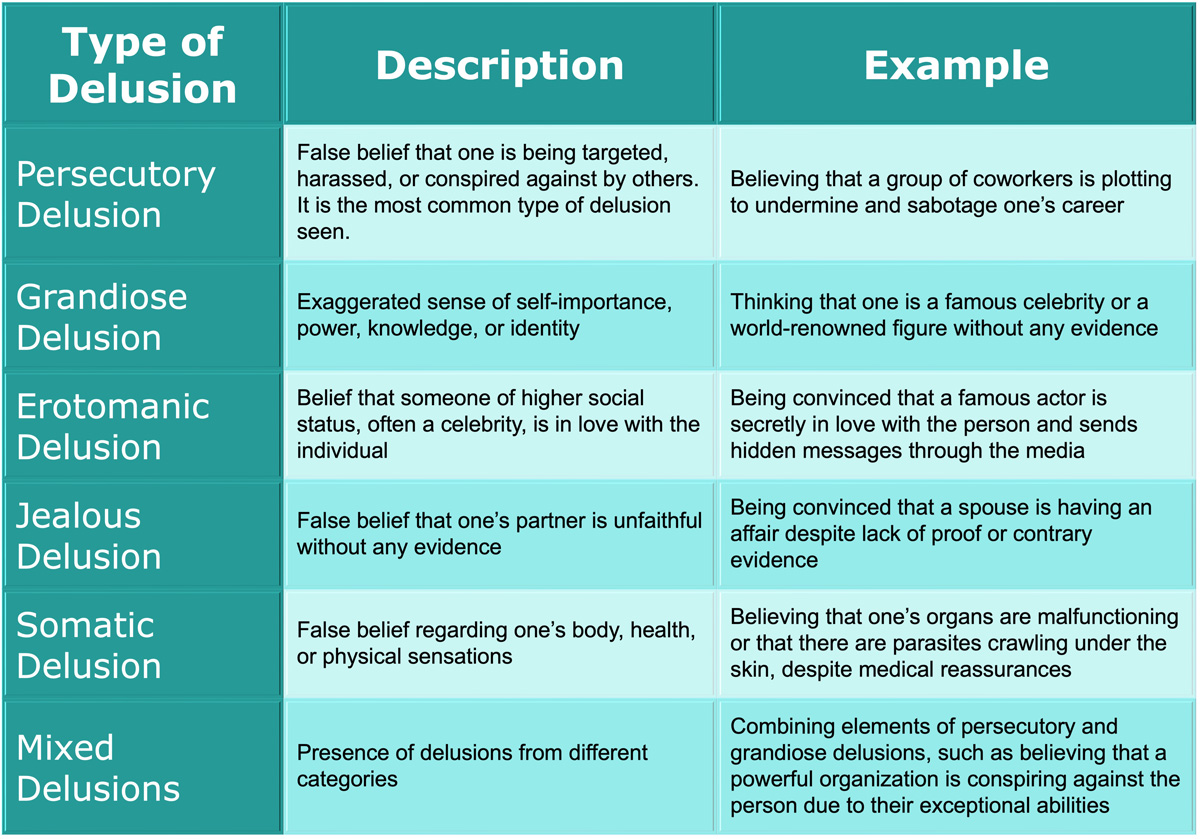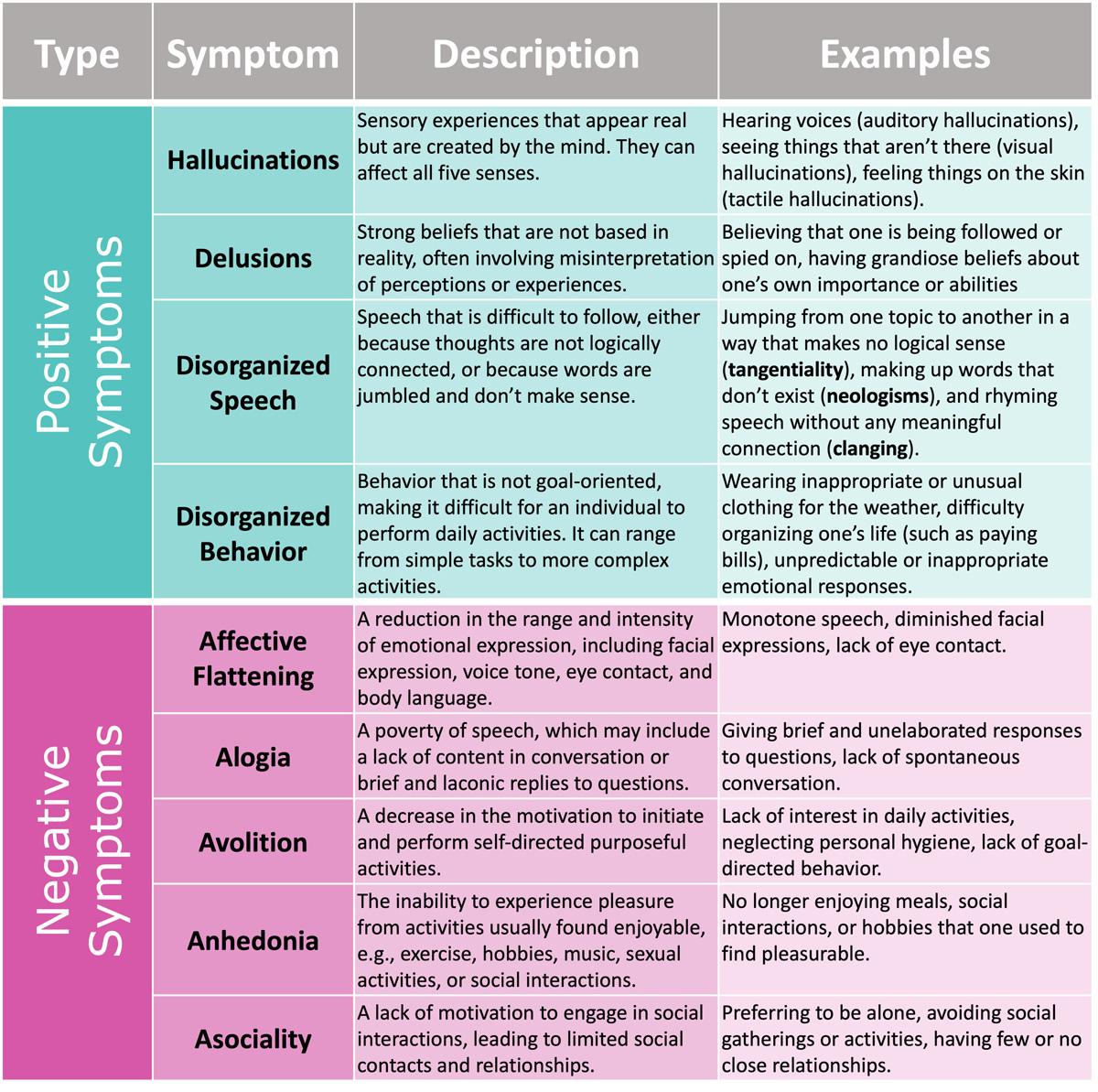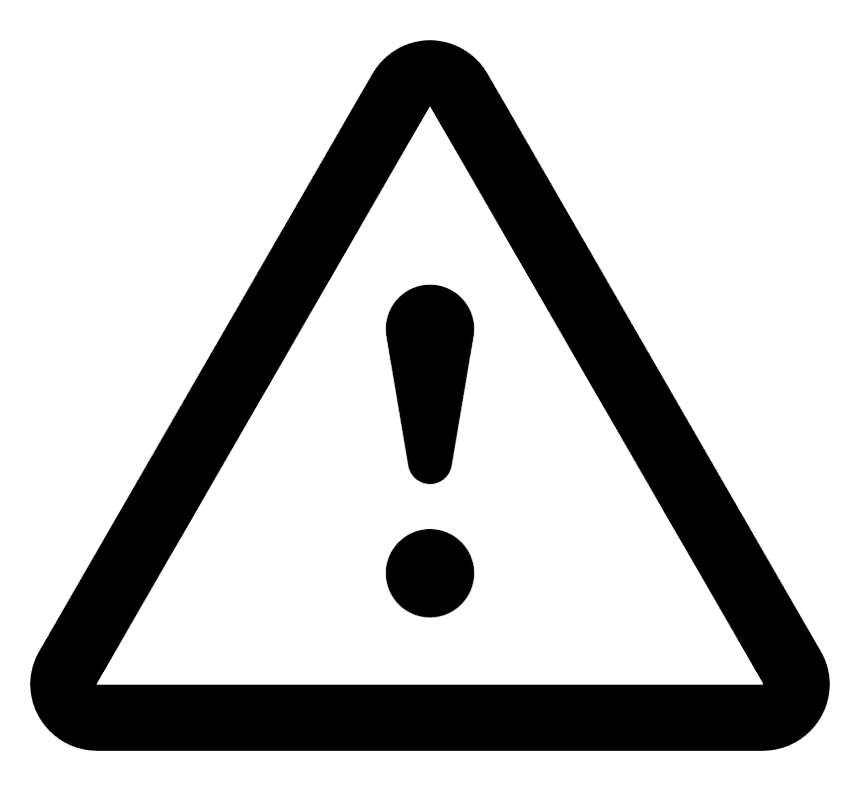Schizophrenia & Psychotic Disorders
This chapter aims to provide a thorough understanding of the diagnostic criteria, clinical features, and treatment approaches for psychotic disorders, which are crucial for both exam preparation and clinical practice. It begins by outlining the diagnostic criteria for schizophrenia and the spectrum of related psychotic disorders. The second half of the chapter will focus on antipsychotic medications, specifically their mechanisms, side effects, and additional high-yield points. After reviewing this chapter, one will be able to answer most questions one would encounter on the Psychiatry Boards or PRITE related to this topic.
Authors: Brian Hanrahan, Daniel Monzo
Delusional Disorder
- The presence of one or more delusions for at least one month or longer with no significant impairment in functioning.
- Patients do not have insight into their delusions and are difficult to treat as a result.
- Patients with delusional disorder must not have prominent hallucinations or mood symptoms.
- Treatment includes second-generation antipsychotics and adjunctive supportive psychotherapy or cognitive behavioral therapy when possible.
Remember
Patients with delusional disorder frequently perceive themselves as being marginalized and disbelieved. It's crucial for the provider to actively listen and show understanding towards the patient's anguish. Providing a supportive therapeutic relationship encompasses fostering a partnership, educating the patient, motivating engagement in beneficial activities, and steering them away from actions driven by their delusions.
Table 1: Types of Delusions
Brief Psychotic Disorder
- The presence of positive psychotic symptoms (delusions, hallucinations, disorganized speech or disorganized behavior) lasting at least 1 day but less than 1 month.
- Patients must have a complete return to premorbid functioning within 1 month of onset.
- Onset is usually sudden and triggered by a clear precipitating factor such as medical illness, social stress, traumatic event, or life changes.
- High risk of recurrence and eventual diagnosis of another psychotic disorder.
- Treatment typically requires a second-generation antipsychotic, such as risperidone or aripiprazole, and adjunctive supportive psychotherapy.
Post-partum Psychosis
1 Month Plan
Full Access Subscription
$68
$
48
49
1 Month -
Access to all chapters
-
Access to all images and cases
-
Access to all flashcards
-
Access to Full Question Bank
3 Month Plan
Full Access Subscription
$159
$
73
49
3 Months -
Access to all chapters
-
Access to all images and cases
-
Access to all flashcards
-
Access to Full Question Bank
1 Year Plan
Full Access Subscription
$446
$
195
49
1 Year -
Access to all chapters
-
Access to all images and cases
-
Access to all flashcards
-
Access to Full Question Bank
Popular
Loading table of contents...
Loading table of contents...



